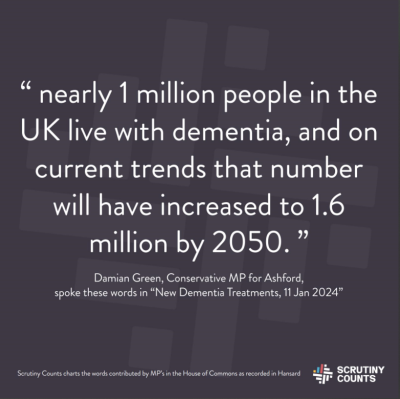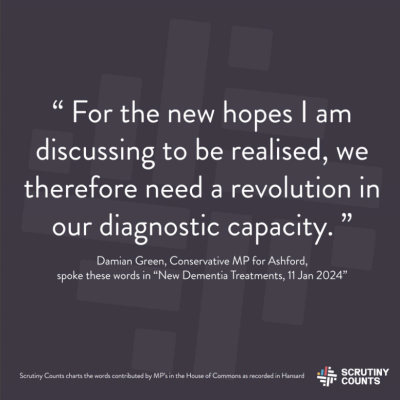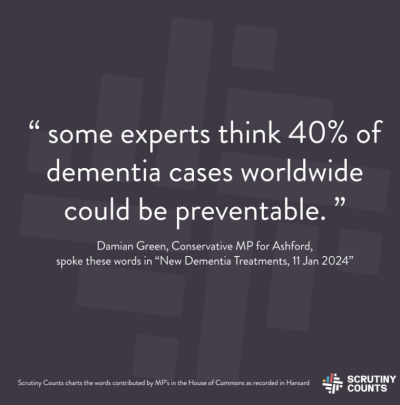
New Dementia Treatments are on the Horizon
It seems that only bad news makes the headlines nowadays, which is a shame. Optimism and gratitude are well established tenets of positive mental health, so I wish people would allow themselves to occasionally drop the self deprecating rhetoric, and look towards the light. Most of my friends are well briefed about the antics of politicians, but when asked, few of them were aware of the recent positive developments in the field of dementia diagnosis and treatment.
The following information is all drawn from a Parliamentary Debate that took place on 11th January 2024. There are 3 key points:
1) New Treatments
Two new treatments, Lecanemab and Donanemab are currently being considered by the MHRA. These two drugs will target and remove a protein called Amyloid which builds up in the brain in people suffering from Dementia. This Amyloid build up stops neurones communicating with each-other and with other parts of the body. A decision is expected from the MHRA in the middle of the year. Then NICE will be called upon to give financial approval for the treatments.

2) Better Diagnosis
These new treatments are only effective in the early stages of the disease so early diagnosis becomes very important. Currently more than a third of patients who are believed to be suffering from dementia haven't had a diagnosis. The two diagnostic tools used are PET scans and lumbar punctures. Currently these are only accessible to 2% of people seeking a diagnosis. Access to diagnosis is a postcode lottery. Interestingly, Stoke is a high performer with a diagnosis rate of over 80%. Lumbar Punctures are cheaper and more scalable than scans; it is thought capacity needs to be increased from 2,000 to 20,000 per annum.

3) Prevention
It is estimated that 40% of dementia cases are preventable. Apparently "what is good for our heart is good for our head". The known risk factors are: high blood pressure, obesity, diabetes, smoking, poor diet and lack of physical activity. According to Helen Whately (Minister for Health and Social Care) Dementia has now been incorporated into the screening offered to people aged between 40 and 74 in England, which looks for early signs of stroke, kidney disease, heart disease and type 2 diabetes.

Dementia is not a natural part of aging. It's an illness and it's now the UK's biggest killer.
So hopefully the MHRA will report back positively later this year, and NICE will progress a speedy approval. But surely the other reason for optimism is the fact that all this was discussed by our MP's in the House of Commons. Debates like this aren't rare. Many of them are interesting, relevant and well researched. The easiest way to stay informed is to download the ScrutinyCounts app. If you subscribe you can use the Topics Search to select debates about Health matters, and you will find plenty more pertinent content.
You can read the full debate that this blog article was based on here: New Dementia Treatments https://scrutinycounts.co.uk/apl/h/7589c8f4-7e1a-4856-b88f-27f65fdf259e